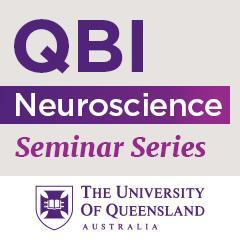Dr Asami Oguro-Ando, University of Exeter Medical School, UK : "CNTN4, a candidate gene for autism spectrum disorders, affects hippocampal neuronal function and behaviour"
Speaker:
Dr Asami Oguro-Ando
University of Exeter Medical School
Exeter, UK
Title: "CNTN4, a candidate gene for autism spectrum disorders, affects hippocampal neuronal function and behaviour"
Abstract: Autism spectrum disorders (ASD) are neurodevelopmental disorders that are clinically detected by impairments in social interaction and restricted, repetitive behaviour. Learning and memory behaviour is one of the endophenotypes that can be studied to simplify the heterogeneity in ASD. Contactin4 (CNTN4), an Ig cell adhesion molecule (IgCAM) gene, has been reported as a strongly associated gene with ASD. We target the functional analysis of CNTN4 and how it changes hippocampal brain functions. The goal of this study is to understand how CNTN4 loss-of-function impacts brain development and behaviour. To this end we used a Cntn4-knockout (KO) mouse model and determined hippocampal neuronal morphology, subjected mice to fear conditioning and hippocampal long-term potentiation.
First, we tested if Cntn4 gene expression affects CA1 synaptic transmission and the ability to induce LTP in hippocampal slices. Stimulation in CA1 stratum radiatum with 900 pulses at 10 Hz and 1 pulse at 100 Hz significantly decreased synaptic potentiation in Cntn4 KO mice.
Next, we investigated brain morphological changes in Cntn4 KO mice. Golgi analyses showed abnormal dendritic arborisation of hippocampal CA1 neurons and an increased hippocampal volume. Furthermore, it was also investigated whether these changes correlated with deficits in learning and memory behaviour. For that purpose, short- and long-term recognition memory, spatial memory and fear conditioning responses were assessed. These behavioural studies showed increased contextual fear conditioning in Cntn4 heterozygous and homozygous KO mice, quantified by a gene-dose dependent increase in freezing response. In comparison to wild-type mice, Cntn4-deficient animals froze significantly less and groomed more, indicative of increased stress responsiveness under the test conditions. Our neuro-anatomical behavioural and electrophysiological results in Cntn4 KO mice suggest that CNTN4 has important functions for fear memory through the neuronal morphological and synaptic plasticity changes in hippocampus CA1.
About Neuroscience Seminars
Neuroscience seminars at the QBI play a major role in the advancement of neuroscience in the Asia-Pacific region. The primary goal of these seminars is to promote excellence in neuroscience through the exchange of ideas, establishing new collaborations and augmenting partnerships already in place.
Seminars in the QBI Auditorium on Level 7 are held on Wednesdays at 12-1pm, which are sometimes simulcast on Zoom (with approval from the speaker). We also occassionally hold seminars from international speakers via Zoom. The days and times of these seminars will vary depending on the time zone of the speaker. Please see each seminar listed below for details.




